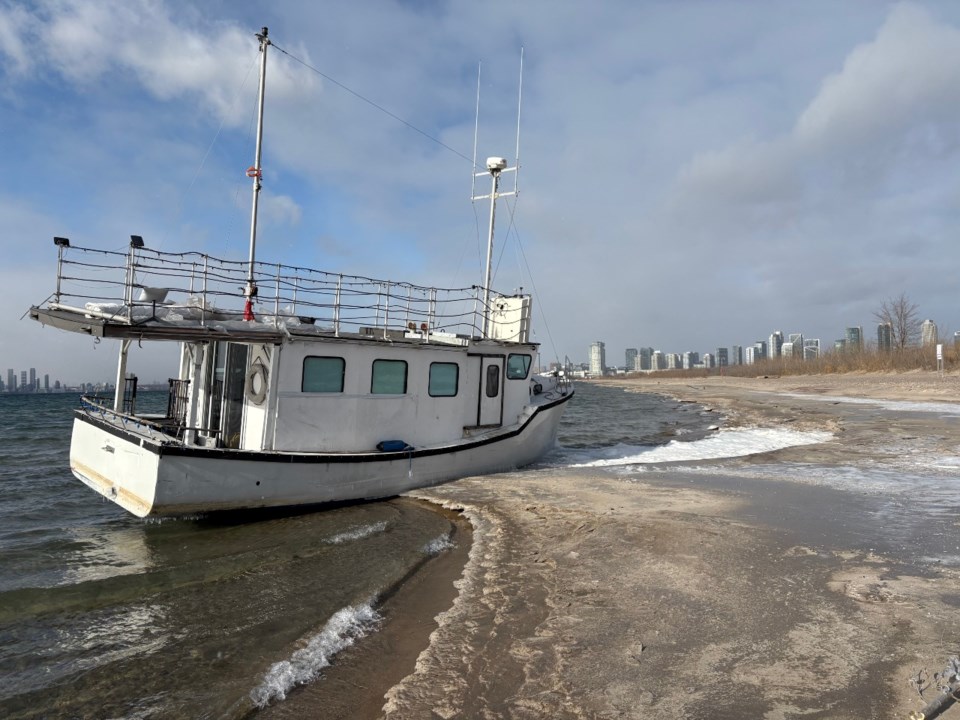The owner of a boat that has been stranded on Hanlan’s Point beach is no longer residing within the vessel’s cabin, according to Toronto Police Services.
The boat washed up on the shore of the Toronto Islands after the vessel lost power in late fall. It has been on the beach since at least Nov. 26, when it was spotted by a local kayaker.
TPS staff visited the boat on Wednesday, alongside workers from the Canadian Coast Guard.
“It is believed there was someone residing on the boat at one point,” said TPS spokesperson Laura Brabant in an emailed statement.
However, TPS confirmed on Thursday that the owner has since found shelter off the island.
When TorontoToday visited the boat on Tuesday, there was a Starlink satellite router on the roof and chip bags inside, suggesting the vessel may have been recently inhabited.
Oil and gas removed from boat
During the visit to the vessel on Wednesday, the Canadian Coast Guard removed “bulk amounts [of] diesel and oil” from the boat, according to CCG spokesperson Forrester Dunbrook.
He said this does not remove all possible environmental contaminants and that the Coast Guard will continue to monitor the situation.
Dunbrook said a notice was posted on the vessel on Wednesday, informing the boat’s owner that they have until Jan. 15th to remove the craft from the shoreline.
If they do not, the Coast Guard may take further action, according to Dunbrook.
In cases where vessels are abandoned by their owners, the responsibility for their removal falls to the government.
The Canadian Coast Guard intervenes if the boat is posing a major environmental risk, while Transport Canada deals with the abandoned vessel if it poses no immediate hazard.
Abandoned boat fines
Owners who abandon their boats face a maximum fine of $25,000, in accordance with the Wrecked, Abandoned or Hazardous Vessels Act.
However, these fines appear to be rare.
Though the problem of abandoned boats is plaguing some parts of Canada, a public database shows the Canadian Coast Guard levied just four such fines in 2024, ranging from $12,000 to $15,000.
The CCG is required by law to publicly list all fines issued.
Dunbrook said fines levied are based upon the particulars of the situation and the cost to the taxpayer of the response.
He said that in the “vast majority” of cases vessel owners comply with CCG direction, making fines unnecessary.
